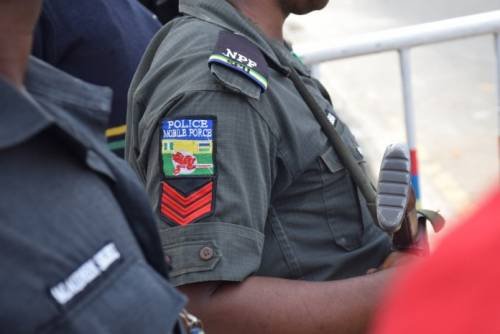
The United States has announced the initiation of a multinational force to safeguard trade in the Red Sea following multiple attacks by Yemen’s Houthi rebels, prompting several shipping companies to halt operations. US Defense Secretary Lloyd Austin revealed that Bahrain, Canada, France, Italy, the Seychelles, and the United Kingdom are among the nations joining the 10-nation “multinational security initiative.” Austin emphasized the necessity for countries committed to the principle of freedom of navigation to unite in addressing the challenge posed by the non-state actor, describing it as an issue demanding collective action.
The announcement follows reports from the US and UK navies stating that their destroyers intercepted a total of 15 drones in the waterway over the weekend. The Iran-backed Houthis have escalated drone and missile attacks on vessels in critical shipping lanes since the Gaza war’s commencement, targeting ships with alleged ties to Israel or Israelis. The rebel group claimed responsibility for attacking the Norwegian-owned Swan Atlantic and the MSC Clara on Monday, using naval drones to express solidarity with Palestinians in Gaza. Swan Atlantic’s owner, Norway’s Inventor Chemical Tankers, clarified that the vessel had no connection to Israel and was managed by a Singaporean firm, and both vessels reported no injuries.
Mohammed al-Bukhaiti, a senior Houthi official and spokesman, declared earlier that the group would confront any US-led coalition in the Red Sea. Safety concerns prompted at least 12 shipping companies, including Mediterranean Shipping Company, CMA CGM, and AP Moller-Maersk, to suspend transit through the Red Sea. UK oil giant BP announced a temporary pause in transit through the Red Sea due to the deteriorating security situation, following suit with other firms redirecting shipping routes around Africa, incurring higher costs and delays for global trade. Approximately 12 percent of global trade passes through the Red Sea, connecting to the Mediterranean Sea via the Suez Canal, with 30 percent of container traffic relying on this crucial route.
For More Updates, join our WhatsApp Group and Telegram Channel






